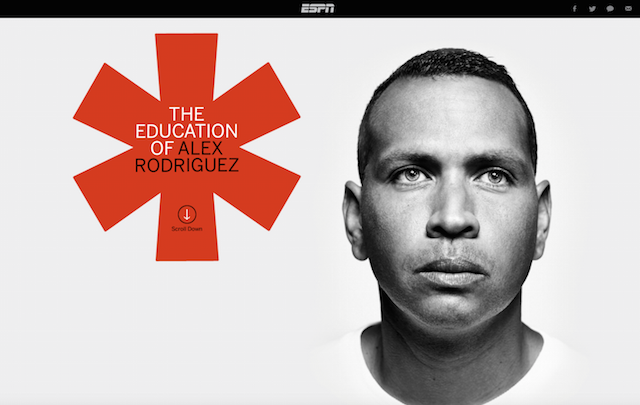8 March 2015 | Articles, Articles 2015, Communications | By Christophe Lachnitt
To Which Extent Should Journalists Take The Public Perception Into Account?
ESPN The Magazine dedicates a long, riveting article to Alex Rodriguez.
A the beginning of the article, the author, J. R. Moehringer, warns his readers that he will not use any quote from Alex Rodriguez, despite the hundred hours he spent with him, because the superstar has lied so much in recent years that his words no longer have any credibility with the public.
Moehringer also explained to the Poynter Institute’s website that he feared that Rodriguez’ quotes would capture the attention of other media, preventing them from being interested in his journalistic work or the player’s redemption efforts.

(CC) ESPN The Magazine
I have a great deal of respect for J. R. Moehringer who notably coauthored Open, Andre Agassi’s remarkable autobiography. But I am baffled by the journalistic logic that he puts forward regarding this article.
In my eyes, the journalist’s mission is neither to maximize the credibility of their work artificially (by refraining from quoting a key protagonist of their story), nor to preserve the credibility of a protagonist in spite of themselves (by denying them the right to be quoted), nor to write their paper based on how they believe it will be perceived.
According to Journalism 101, a journalist should let every side of a story give their views in a balanced way. Alex Rodriguez should have been given an opportunity to explain his descent into hell and year of purgatory.
Last but not least, if journalists must now refrain from quoting in their stories people who are considered untrustworthy, the number of pages of newspapers should be drastically reduced.
This logic seems all the more inappropriate to me because:
- No one is ever discredited in the eyes of the entire population. At what point should a journalist consider that an individual is so discredited that they have no right to be quoted in their article? This logic can only exacerbate the polarization of the political news coverage.
- One may experience a credibility crisis and not be guilty. According to Moehringer’s journalistic method, an individual accused of a crime would not, if everything incriminates him, have the right to express themselves in the media because they wouldn’t be credible, even if speaking publicly could prove their innocence.
- Even though he wants to help Rodriguez preserve his image, Moehringer’s technique prevents people from having a second chance once they have gone through a crisis.
J. R. Moehringer sets an example for young journalists with his great writing talent. It is unfortunate that he confuses them with the journalistic method he is promoting on the occasion of the publication of this article.


